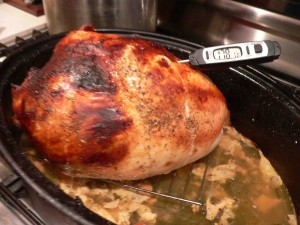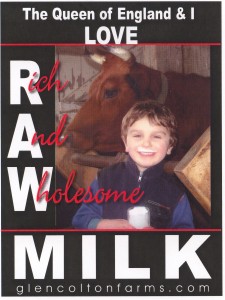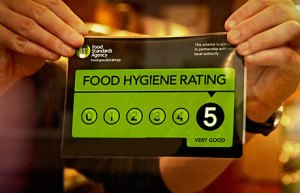Doing the same thing and expecting different results is crazy.
But that’s exactly what the UK’s Food Standards Agency is doing, and more people are getting sick.
The same unfounded risk messages (piping/steaming hot), bad surveys to inform policy, blind faith in occasional audits, and an utter lack of  creativity or urgency combine to produce a culture of complacency, from farm-to-fork.
creativity or urgency combine to produce a culture of complacency, from farm-to-fork.
The Daily Mail reports that cases of camplobacteriosis continue to rise, despite FSA targeting Campylobacter as its top priority in 2008.
New figures published by the Food Standards Agency (FSA) reveal the number of cases has been rising every year for the past four years.
The FSA and its advisers had hoped that putting in place improved hygiene controls, so-called biosecurity measures, on chicken farms would reduce the number of infected birds.
However its strategy, which was designed to reduce the number of contaminated chicken on farms by 50per cent by 2010, has been a hopeless failure.
Successive chief executives at the FSA have lambasted supermarkets for not doing enough to cut campylobacter contamination in the chicken they sell.
In 2010, the then chief executive, Tim Smith, wrote to the chief executives of all the supermarkets demanding action. This failed to bring about the desired result and Mr Smith is now the group technical director at Tesco.
Following a failure to improve the situation, his successor, Catherine Brown, issued a new call for action in January this year, saying tackling  campylobacter in chicken was her top priority.
campylobacter in chicken was her top priority.
Miss Brown called supermarket bosses to a meeting to thrash out plans to tackle the menace, while she has even hinted that stores might be required to remove chicken from sale unless they can guarantee the bug has been removed.
She said it ‘unacceptable’ that two-thirds of chicken carry the disease, while a fifth are ‘highly contaminated’ at the time of purchase.
However, yet again there is no evidence of any major drive by the supermarkets to protect customers, beyond introducing new non-drip packaging.
The Government watchdog is now considering drastic measures to clean up chicken and protect consumers. These include killing the bugs by either washing the meat with lactic acid or the use of blast freezing.
Using a lactic acid wash to disinfect the birds has its own difficulties with evidence that many consumers have an instinctive dislike of the idea.
 The FSA Board met to discuss the findings of the comprehensive review of the regulations that control the sale of unpasteurised, or raw, drinking milk.
The FSA Board met to discuss the findings of the comprehensive review of the regulations that control the sale of unpasteurised, or raw, drinking milk.



